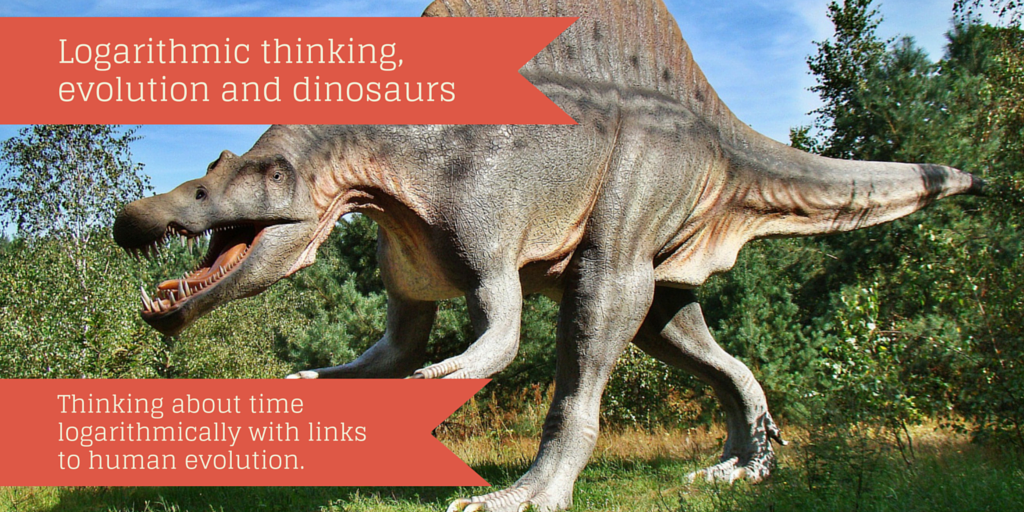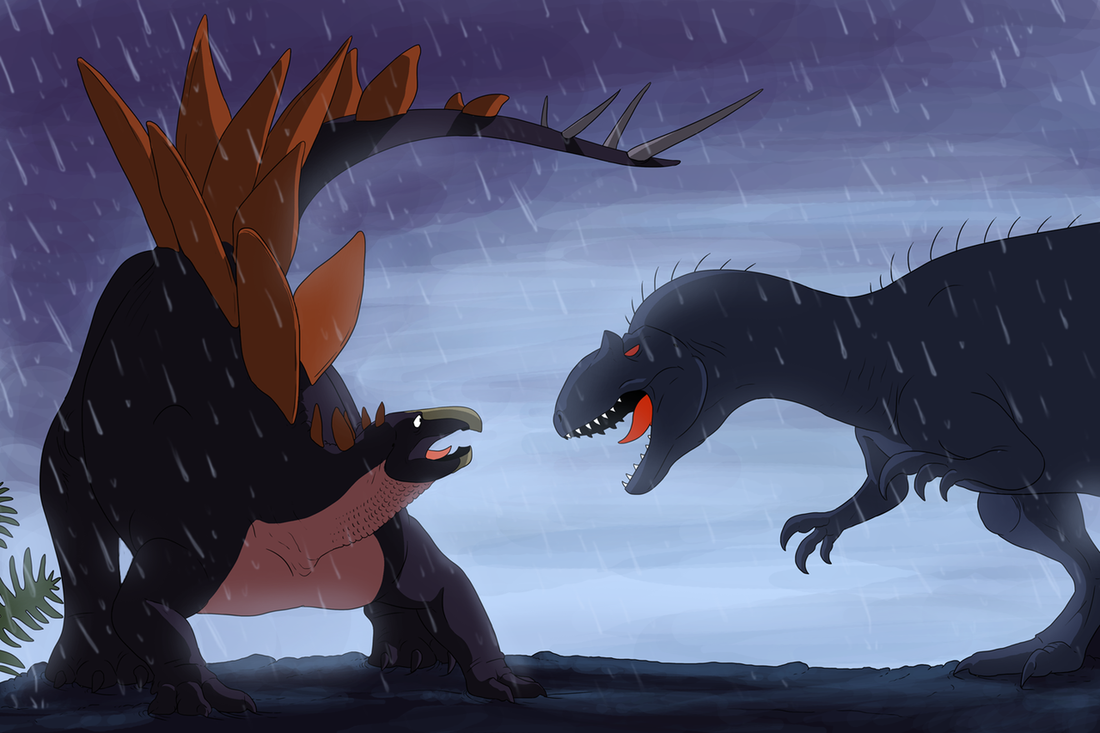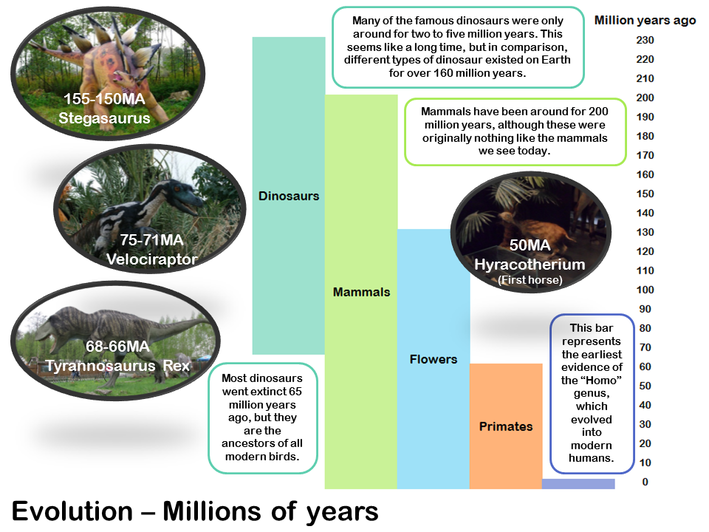While we were watching it, we ended up discussing the huge time frames involved in the evolution of both dinosaurs and life in general. When I visualise dinosaurs, I imagine all the famous ones like Tyrannosaurus Rex, Stegasaurus and Diplodocus all roaming the planet at the same time. Something that struck me was the phenomenal length of time that dinosaurs in general were on the planet, and the (relative) shortness of the time that each recognisable species was around.
When I taught logarithms to my sixth formers a couple of years ago, I was reading Alex's Adventures in Numberland at the time. In the first chapter, he talks about evidence that shows that humans naturally think logarithmically rather than in a linear fashion. We discussed this in the lesson and decided that it's probably true - here's the quote that summed it up best for me:
Our understanding of the passage of time tends to be logarithmic. We often feel that time passes faster the older we get. Yet it works in the other direction too: yesterday seems a lot longer than the whole of last week.
It seemed that this kind of thinking was at play with my visualisation of the evolutionary story of the Earth - my lifetime is a drop in the ocean of human evolution, which in turn is practically insignificant in the lifespan of our planet (dating from first recorded history, just over 0.0001%).
I feel like there might be some nice connections to standard form and place value here - I don't think I'd plan a lesson around this concept, but it might work nicely for a ten-minute discussion.
I'll post links to all the posters when I'm done - let me know if you've got any brain waves for developing this in the classroom!



 RSS Feed
RSS Feed
